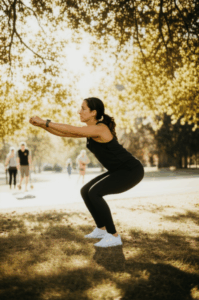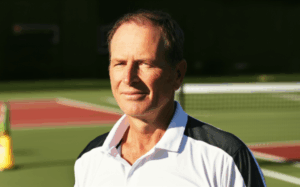For years, breakfast has been hailed as the most important meal of the day. The idea of starting your day with a nutrient-packed meal has been ingrained in our minds, promising benefits from boosted energy to weight management. However, not everyone subscribes to this conventional wisdom. An increasing number of people, including some experts in the field of exercise and nutrition, are challenging the necessity of breakfast. One such expert, exercise scientist Mike Israetel, has openly discussed his reasons for often skipping a nutrient-dense breakfast, sparking debate and prompting a closer look at the science behind this dietary choice.
The Case Against the Breakfast Obsession
Israetel, known for his expertise in nutrition and strength training, has expressed that he simply doesn’t have much of an appetite in the mornings. He questions the widespread obsession with elaborate breakfasts and the time invested in preparing them. Instead, he focuses on strategically planning his other meals to support his health, performance, and body composition goals. This approach challenges the traditional view that a large, nutrient-dense breakfast is essential for everyone.
Potential Benefits of Skipping Breakfast
While the idea of skipping breakfast might seem counterintuitive, there are several reasons why some individuals might find it beneficial:
Intermittent Fasting: Skipping breakfast can be a simple way to incorporate intermittent fasting (IF) into your lifestyle. IF involves cycling between periods of eating and fasting, and it has been linked to various potential health benefits, including weight loss, improved insulin sensitivity, and enhanced cellular repair processes like autophagy.
Weight Management: For some, skipping breakfast can lead to a reduced overall calorie intake. By pushing the first meal of the day later, individuals may naturally eat less throughout the day, contributing to weight loss or maintenance.
Improved Mental Focus: Some people find that skipping breakfast enhances their mental clarity and focus. This may be due to the body’s transition into a fasted state, which can positively impact cognitive function.
Enhanced Energy Utilization: Skipping breakfast may encourage the body to utilize stored fat for energy, potentially improving metabolic flexibility.
Potential Downsides of Skipping Breakfast
Despite the potential benefits, it’s crucial to acknowledge the potential drawbacks of skipping breakfast:
Nutrient Deficiencies: Consistently skipping breakfast could lead to deficiencies in essential nutrients, especially if the subsequent meals are not carefully planned to compensate for the missed nutrients.
Reduced Physical Performance: Studies suggest that skipping breakfast can negatively impact athletic performance, particularly endurance and intensity. Athletes who skip breakfast may experience decreased power output and increased fatigue.
Blood Sugar Imbalance: For some individuals, skipping breakfast can lead to fluctuations in blood sugar levels, potentially causing headaches, dizziness, and difficulty concentrating.
Increased Risk of Overeating Later: Prolonged fasting in the morning might lead to excessive hunger later in the day, potentially resulting in overeating and unhealthy food choices.
The Importance of Individualization
The decision of whether to eat breakfast or skip it should be based on individual needs, preferences, and goals. There is no one-size-fits-all answer. Factors to consider include:
Activity Level: Athletes and individuals with high physical demands may benefit from a nutrient-dense breakfast to fuel their workouts and support recovery.
Metabolic Health: People with diabetes or insulin resistance should consult with a healthcare professional to determine the best breakfast strategy for managing their blood sugar levels.
Personal Preferences: Ultimately, the most sustainable dietary approach is one that aligns with your individual preferences and lifestyle. If you enjoy breakfast and find that it helps you feel energized and focused, there’s no reason to skip it. Conversely, if you naturally feel better skipping breakfast, it may be a viable option.
What Constitutes a Nutrient-Dense Breakfast?
For those who choose to eat breakfast, focusing on nutrient-dense options is key. A nutrient-dense breakfast should provide a balance of macronutrients (protein, carbohydrates, and fats) and micronutrients (vitamins and minerals).
Here are some examples of nutrient-dense breakfast ideas:
Eggs: Eggs are a powerhouse of protein and essential nutrients. Enjoy them boiled, poached, scrambled, or as an omelet with added vegetables and cheese.
Greek Yogurt: Greek yogurt is a great source of protein and calcium. Top it with berries, nuts, seeds, and a drizzle of honey for added flavor and nutrients.
Oatmeal: Oatmeal is a fiber-rich complex carbohydrate that provides sustained energy. Add fruit, nuts, and protein powder to enhance its nutritional value.
Smoothies: Smoothies are a convenient way to pack in fruits, vegetables, and protein. Blend bananas, berries, spinach, protein powder, and chia seeds for a quick and nutritious breakfast.
Whole Grain Toast: Opt for whole-grain toast topped with avocado, nut butter, or a poached egg for a balanced and satisfying breakfast.
Israetel’s Approach to Meal Timing
Israetel’s personal breakfast typically consists of a protein shake or a few protein bars, along with a simple coffee concoction. While this might not be a traditional nutrient-dense breakfast, it aligns with his focus on prioritizing protein intake and managing his appetite. He emphasizes the importance of consuming adequate protein, vegetables, and carbohydrates throughout the rest of the day to meet his nutritional needs. He separates his meals into two categories: “business meals,” which consist of nutrient-dense foods, and “fun meals,” which are occasional indulgences. This approach allows him to maintain a balanced and sustainable dietary pattern.
The Science of Breakfast and Performance
Research on the impact of breakfast on exercise performance is mixed. Some studies suggest that eating breakfast, particularly a carbohydrate-rich meal, can improve endurance and power output. A study of highly trained cyclists found that skipping breakfast negatively impacted their performance in a 20K time trial later in the day. The cyclists also burned less fat and more carbohydrates on the days they fasted in the morning. However, other studies have found no significant difference in performance between breakfast eaters and breakfast skippers, especially for shorter-duration exercises. A review of existing literature indicates that breakfast consumption may benefit acute long-duration (over 60 minutes) endurance exercise but not short-duration exercise. Evening time trial performance was consistently inhibited following breakfast omission, even with resumed eating midday.
Beyond the First Meal: A Holistic View of Nutrition
Ultimately, the debate over breakfast highlights the importance of taking a holistic view of nutrition. Rather than fixating on a single meal, it’s crucial to focus on overall dietary patterns, nutrient intake, and individual needs. Whether you choose to eat breakfast or skip it, prioritizing a balanced and nutrient-dense diet throughout the day is essential for supporting your health, performance, and well-being. Consult with a registered dietitian or healthcare professional to determine the best dietary strategy for your individual needs and goals.







